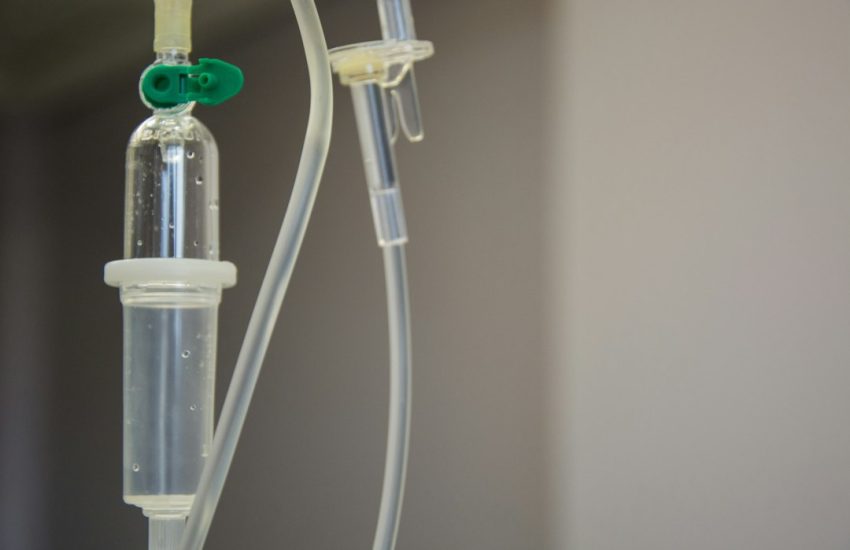Revitalize Your Body: Tips to Combat Post Workout Fatigue
Post-workout recovery is an essential aspect of any fitness routine. It is during this time that the body repairs and rebuilds itself, allowing for optimal performance in future workouts. Without proper recovery, the body can become fatigued, leading to decreased performance, increased risk of injury, and overall burnout. In this article, we will explore the various aspects of post-workout recovery and provide tips on how to maximize your results.
Contents
- 1 Understanding Post-Workout Fatigue: Causes and Symptoms
- 2 Importance of Rest and Recovery for Optimal Performance
- 3 Hydration and Nutrition: Fueling Your Body for Success
- 4 Incorporating Active Recovery Techniques into Your Routine
- 5 The Benefits of Stretching and Flexibility Training
- 6 Sleep: The Ultimate Recovery Tool
- 7 Mindfulness and Meditation: Clearing Your Mind for Better Results
- 8 Avoiding Overtraining: Listening to Your Body’s Signals
- 9 The Role of Supplements in Post-Workout Recovery
- 10 Creating a Personalized Recovery Plan for Maximum Results
Understanding Post-Workout Fatigue: Causes and Symptoms
Post-workout fatigue can be categorized into three main types: muscular fatigue, central fatigue, and neuromuscular fatigue. Muscular fatigue occurs when the muscles are unable to contract efficiently due to the accumulation of metabolic byproducts such as lactic acid. Central fatigue refers to a decrease in the ability of the central nervous system to activate the muscles. Neuromuscular fatigue is a combination of both muscular and central fatigue.
There are several common causes of post-workout fatigue. One of the primary causes is overtraining or pushing your body beyond its limits without allowing for adequate rest and recovery. Other causes include dehydration, lack of proper nutrition, inadequate sleep, and poor technique during workouts.
Symptoms of post-workout fatigue can vary from person to person but may include muscle soreness, decreased strength and endurance, increased heart rate during exercise, irritability, and difficulty concentrating. It is important to listen to your body and recognize these symptoms as signs that you may need to adjust your training or incorporate more rest and recovery into your routine.
Importance of Rest and Recovery for Optimal Performance
Rest and recovery are crucial for optimal performance in any fitness routine. When you exercise, you are essentially breaking down muscle tissue. It is during rest periods that the body repairs and rebuilds this tissue, making it stronger and more resilient.
In addition to muscle repair, rest and recovery also allow for the replenishment of energy stores, such as glycogen, which is essential for sustained performance. Without adequate rest, these energy stores can become depleted, leading to decreased performance and increased risk of injury.
Overtraining is a common pitfall for many athletes and fitness enthusiasts. It occurs when the body is not given enough time to recover between workouts, leading to a state of chronic fatigue. Overtraining can have detrimental effects on both physical and mental health, including decreased immune function, hormonal imbalances, decreased motivation, and increased risk of injury. It is important to prioritize rest and recovery to avoid overtraining and achieve optimal performance.
Hydration and Nutrition: Fueling Your Body for Success
Proper hydration and nutrition are essential for post-workout recovery. When you exercise, you lose fluids through sweat, and it is important to replenish these fluids to maintain optimal performance. Dehydration can lead to decreased energy levels, muscle cramps, and impaired cognitive function.
In addition to hydration, fueling your body with the right nutrients is crucial for recovery. Consuming a balanced diet that includes carbohydrates, protein, and healthy fats provides the body with the necessary building blocks for muscle repair and growth. Carbohydrates replenish glycogen stores, while protein provides the amino acids needed for muscle repair.
To stay hydrated, it is recommended to drink water before, during, and after your workout. The amount of water you need will vary depending on factors such as intensity of exercise, duration of exercise, and environmental conditions. It is also important to consume a post-workout meal or snack that includes a combination of carbohydrates and protein within 30 minutes to an hour after your workout to optimize recovery.
Incorporating Active Recovery Techniques into Your Routine
Active recovery refers to engaging in low-intensity activities that promote blood flow and aid in the removal of metabolic waste products from the muscles. This can include activities such as yoga, swimming, cycling, or light jogging. Active recovery has been shown to reduce muscle soreness, improve circulation, and enhance overall recovery.
Incorporating active recovery into your routine can be as simple as taking a walk or doing some gentle stretching after a workout. It is important to listen to your body and choose activities that feel good and promote relaxation. Active recovery can also be a great way to incorporate mindfulness and meditation into your routine, which we will discuss in more detail later in this article.
The Benefits of Stretching and Flexibility Training
Stretching and flexibility training are often overlooked aspects of post-workout recovery, but they play a crucial role in maintaining optimal performance. Stretching helps to improve flexibility, increase range of motion, and prevent muscle imbalances and injuries.
There are different types of stretching that can be incorporated into your routine. Static stretching involves holding a stretch for a prolonged period of time, while dynamic stretching involves moving through a range of motion. PNF (proprioceptive neuromuscular facilitation) stretching is a more advanced technique that involves contracting and relaxing muscles while stretching.
To incorporate stretching into your routine, it is recommended to perform static stretches after your workout when your muscles are warm. Hold each stretch for 15-30 seconds and repeat 2-3 times. Dynamic stretching can be done as part of your warm-up before a workout to prepare the muscles for movement.
Sleep: The Ultimate Recovery Tool
Sleep is often referred to as the ultimate recovery tool, and for good reason. During sleep, the body goes through various stages of restorative processes that are essential for recovery and overall health. Lack of sleep can lead to decreased cognitive function, impaired immune function, increased risk of injury, and decreased performance.
It is recommended to aim for 7-9 hours of quality sleep per night. To improve sleep quality, establish a consistent sleep schedule, create a sleep-friendly environment, and practice good sleep hygiene. This includes avoiding electronic devices before bed, keeping your bedroom cool and dark, and practicing relaxation techniques such as deep breathing or meditation.
Mindfulness and Meditation: Clearing Your Mind for Better Results
Mindfulness and meditation are powerful tools that can enhance post-workout recovery. Mindfulness involves being fully present in the moment and paying attention to your thoughts, feelings, and sensations without judgment. Meditation is a practice that involves focusing your attention and eliminating the stream of thoughts that may be running through your mind.
Practicing mindfulness and meditation can help reduce stress, improve focus and concentration, enhance self-awareness, and promote relaxation. These practices can be incorporated into your routine by setting aside a few minutes each day to sit quietly and focus on your breath or engage in guided meditation.
Avoiding Overtraining: Listening to Your Body’s Signals
Overtraining is a common pitfall for many athletes and fitness enthusiasts. It occurs when the body is not given enough time to recover between workouts, leading to a state of chronic fatigue. Overtraining can have detrimental effects on both physical and mental health, including decreased immune function, hormonal imbalances, decreased motivation, and increased risk of injury.
To avoid overtraining, it is important to listen to your body’s signals. This includes paying attention to symptoms of fatigue, such as decreased performance, increased heart rate during exercise, muscle soreness that lasts longer than usual, irritability, and difficulty concentrating. If you notice these symptoms, it may be a sign that you need to adjust your training or incorporate more rest and recovery into your routine.
The Role of Supplements in Post-Workout Recovery
Supplements can play a role in post-workout recovery by providing the body with additional nutrients that may be lacking in your diet. There are various types of supplements that can aid in recovery, including protein powders, branched-chain amino acids (BCAAs), creatine, and omega-3 fatty acids.
Protein powders are a convenient way to increase your protein intake, which is essential for muscle repair and growth. BCAAs are amino acids that can help reduce muscle soreness and promote muscle protein synthesis. Creatine is a compound that can enhance strength and power output. Omega-3 fatty acids have anti-inflammatory properties and can aid in reducing exercise-induced inflammation.
When choosing supplements, it is important to do your research and consult with a healthcare professional or registered dietitian. Supplements should not replace a balanced diet but can be used as a complement to support your recovery goals.
Creating a Personalized Recovery Plan for Maximum Results
Creating a personalized recovery plan is essential for maximizing your post-workout results. This plan should take into consideration your individual needs, goals, and preferences. Here are some steps to help you create a personalized recovery plan:
1. Assess your current routine: Take a look at your current workout routine and identify areas where you may be lacking in rest and recovery. Are you allowing enough time between workouts? Are you incorporating active recovery techniques? Are you getting enough sleep?
2. Set realistic goals: Determine what you want to achieve with your recovery plan. Do you want to reduce muscle soreness? Improve performance? Prevent injuries? Setting specific goals will help guide your plan.
3. Incorporate rest days: Schedule regular rest days into your routine to allow for adequate recovery. This may involve taking complete days off from exercise or engaging in low-intensity activities such as walking or yoga.
4. Plan active recovery sessions: Incorporate active recovery techniques into your routine on rest days or as part of your warm-up or cool-down. Choose activities that you enjoy and that promote relaxation.
5. Prioritize sleep: Establish a consistent sleep schedule and create a sleep-friendly environment to optimize your sleep quality. Aim for 7-9 hours of quality sleep per night.
6. Fuel your body properly: Pay attention to your nutrition and hydration. Consume a balanced diet that includes carbohydrates, protein, and healthy fats. Stay hydrated by drinking water before, during, and after your workouts.
7. Practice mindfulness and meditation: Set aside a few minutes each day to practice mindfulness or meditation. This can help reduce stress, improve focus, and promote relaxation.
8. Listen to your body: Pay attention to your body’s signals and adjust your training or recovery plan as needed. If you notice symptoms of fatigue or decreased performance, it may be a sign that you need more rest or recovery.
9. Stay consistent: Stick to your recovery plan and make it a priority. Consistency is key when it comes to maximizing your post-workout results.
Post-workout recovery is an essential aspect of any fitness routine. It allows the body to repair and rebuild itself, leading to improved performance and decreased risk of injury. By incorporating rest and recovery techniques such as hydration, nutrition, active recovery, stretching, sleep, mindfulness, and supplements into your routine, you can optimize your results and achieve your fitness goals. Remember to listen to your body’s signals and create a personalized recovery plan that works for you. Prioritizing recovery will not only enhance your performance but also contribute to overall health and well-being.



